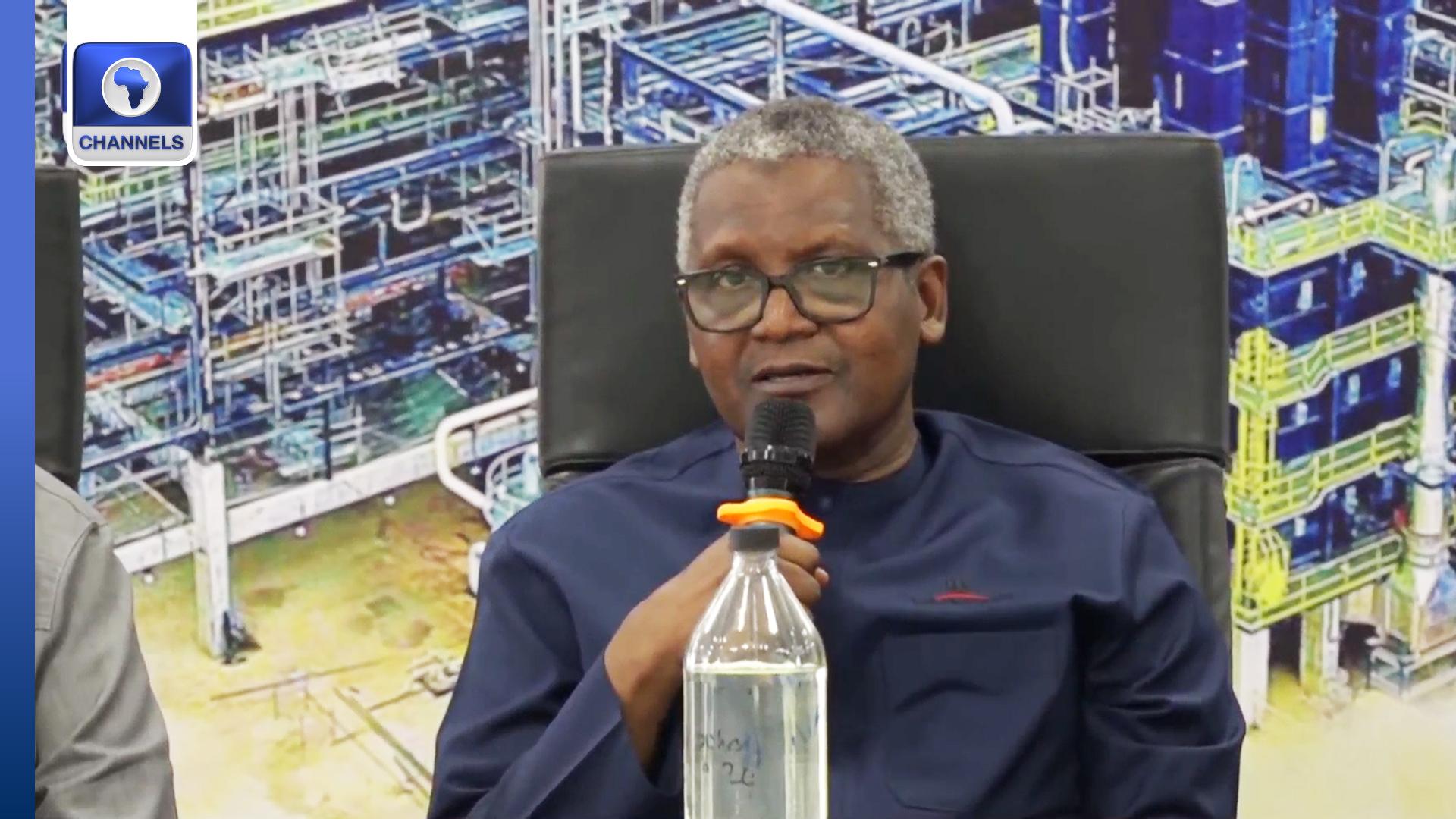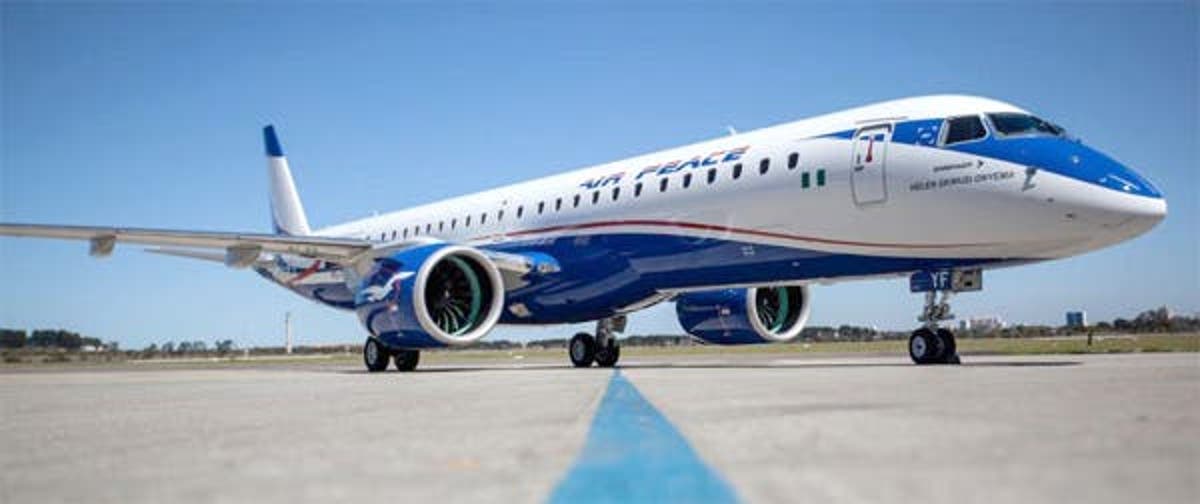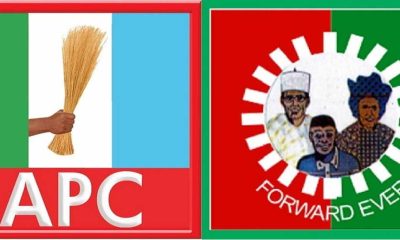Business
Naira in major fall, exchanges N1,000 to dollar at black market

Naira in major fall, exchanges N1,000 to dollar at black market
The foreign exchange crisis in the country worsened on Thursday as a dollar exchanged for over N1,000 at the parallel market, Daily Trust reports.
Survey at popular black markets in Lagos indicated that a dollar exchanged for between N1,000 and N1,050 in the early hours of Thursday, before settling for N990 in the evening, indicating a difference of N252 from the Investors & Exporters FX window, where the naira closed at N738.
The gap between the official and parallel market has steadily widened, since the Central Bank of Nigeria (CBN) announced unification of all segments of the foreign exchange markets in June.
However, despite the unification policy, the parallel market has continued to witness patronage due to the scarcity of the greenback at the official market, according to operators.
Naira crashes to N970 at black market
“There is scarcity at the market,” said Ismail Muhammed, one of the operators at Allen Roundabout.
“We are now buying dollars for N990 but earlier in the day, it was sold for N1, 000. Some people exchanged it for N1, 050,” he said.
Another operator, Abdullahi Olugbede, said that the surge was caused by the scarcity as most licensed Bureau De Change Operators do not have dollars to trade with.
READ ALSO:
-
NASDAQ: Tinubu 1st African President to ring closing bell
-
Fish out Naira Marley for enslaving, killing my son – Mohbad’s mother tells Senate
-
The god that cut soap for Wizkid (2)
“When there is scarcity, the dollar will go up against the naira but we are not happy. We should pray that it will come down because this is not good,” he said.
Implications are negative — Experts
Experts have warned that the implications of the depreciation of the naira in the black market are negative as it will adversely affect the economy.
Professor of Accounting and Financial Development at Lead City University, Ibadan, Godwin Oyedokun, said it will make it difficult to do business in Nigeria because of the relevance of exchange rate in the economy.
“I am not currently in the country. Let me cite an example, I wanted to buy a can of coke today in Jordan. I could buy the same can of coke for $2 that is almost N2, 000 if a dollar exchanges for N990 in Nigeria as you said. This is just because the strength of our currency is very weak.
“The implication is that goods that Nigerians should get from abroad, let’s say if dollar to naira is 1/1, Nigerians will now spend as high as 990 minus 1; that is, goods worth N300,000 will now be worth times 990 of it. So, it makes it so difficult to do business. Every sector of the economy will adjust to this and will make the price of commodities become costly,” he said.
The tax and forensic expert, however, said, the pressure on the naira will reduce if the government implements the right policies and also boost local production so that Nigeria can also earn more foreign exchange.
“The only way to address this is to have the right policies in place which the current government is doing and have things that we can also export to earn foreign exchange. The finance minister and the new CBN governor will need to think about how the fiscal and monetary policies can work together effectively so that we can have a country of our own. It will interest you that Jordan’s currency, Jordanian Dinar, is higher than the dollar, it is about $1.41. If we get the policies right, the pressure on the naira will reduce,” he said.
Economist and former Director General of the Lagos Chamber of Commerce and Industry (LCCI), Dr Muda Yusuf, said that among others, it will have an effect on inflation as the economy is very sensitive to exchange rate movement.
READ ALSO:
- Mohbad represents millions of Nigerian youths without proper mentors – Lagos Pastor
-
Europa League: Liverpool come from behind to defeat LASK
-
Apprehension in Jos as Plateau tribunal delivers judgement on guber poll today
“The implications are very negative to put it mildly because it shows there are some fundamental challenges that we still need to deal with that are driving the exchange rate. We need to further interrogate how deep the parallel market is and what percentage of economic activities are being funded by the parallel market.
“We need that research, we need that data because each time we talk about the exchange rate, people don’t even talk about the official rate anymore, we just talk about the parallel market,” he said.
Citing the likely effects on the different sectors of the economy, he said, “Diesel price has gone up, gas price is likely to go up. The PMS is under pressure and should have gone up if not for the fact that the president said that NNPC should hold on, otherwise petrol price should have jumped to over N800 by now.”
Dr Muda, who is also the Chief Executive Officer, Centre for the Promotion of Private Enterprise (CPPE), said that some extraneous variables including money laundering might be responsible for the pressure on the naira.
“I think there are some extraneous variables that have not been captured in our analysis because this speculative assault on the naira is not looking ordinary anymore. I am beginning to worry that perhaps, there are quite a number of illicit funds that are putting this pressure on the Naira because how many manufacturers can continue to buy dollars at this rate? And yet it keeps going up and people are buying it. How many people with genuine income or resources can do that? It is possible there are factors around money laundering, possibly people have loads of naira they are seeking to convert to dollars,” he said.
While noting that the current pressures have defied the forecasts of many economists when the unification policy was introduced, he counselled the government against jettisoning the policy.
READ ALSO:
-
Chicago University : Tinubu dashes Atiku’s hope, appeals court judgement in US
-
Man cuts off neighbour’s wrist for sleeping with wife in Fulani camp
-
BREAKING: Edo deputy gov Shaibu begs Obaseki for forgiveness
“The government can’t afford to be chasing the parallel rate at this time because the situation will become worse. It means they have to move the official rate from N700+ to N800 or N850. The situation now is not responding to the kind of forecast that many of us predicted. This is not the kind of impact we thought convergence will have because on the face of it, convergence normally encourages more inflows and should normally reduce demand,” he said.
Financial analyst, Abiola Rasaq, who said that the backlog of demand in the system continues to put pressure on the naira, however, said the positive outlook for oil price will likely strengthen the country’s currency against the dollar.
“The market is still somewhat speculative, especially as autonomous supply of FX is still weak whilst demand remains relatively elevated. More so, the backlog of demand in the system continues to put pressure on price. Interestingly, we are close to the end of the seasonal Q3 demand cycle, thus the naira should have some respite. Even as FX supply may remain relatively weak, moderation in demand should help calm the pressure and provide relative stability to the naira in the rest of the ember months, especially if some of the efforts of the government towards improving oil export comes to fruition.
“Notably, the positive outlook for oil price is also supportive of stronger naira in the months ahead, especially if oil export is complemented with steady rise in non-oil exports,” he said.
President Bola Tinubu recently nominated a banking executive and former civil servant, Olayemi Cardoso to serve as the new governor of CBN.
Tinubu also approved the nomination of Emem Nnana Usoro, Muhammad Sani Abdullahi Dattijo, Philip Ikeazor and Bala Bello as deputy governors of the apex bank, for a term of five years at the first instance, pending their confirmation by the Nigerian Senate.
It is unclear if the former CBN governor, Godwin Emefiele, who was suspended and has been in detention since June, has resigned.
Business
I’m honoured, excited over World Bank’s appointment – Dangote

I’m honoured, excited over World Bank’s appointment – Dangote
President and CEO of Dangote Group, Aliko Dangote, has expressed gratitude following his appointment to the World Bank’s Private Sector Investment Lab, a global initiative aimed at accelerating private investment and job creation in emerging economies.
In a statement confirming the development, Dangote described the appointment as both an honour and a reflection of his long-standing commitment to economic development through private enterprise.
“I am both honoured and excited to accept my appointment to the World Bank’s Private Sector Investment Lab, dedicated to advancing investment and employment in emerging economies,” Dangote said.
“This opportunity aligns with my long-standing commitment to sustainable development and unlocking the potential of developing economies.”
He referenced the successes of the so-called Asian Tigers, economies that experienced rapid growth through strategic investment, as a source of inspiration for advancing similar outcomes in other parts of the world.
The World Bank announced Dangote’s inclusion on Wednesday as part of a broader expansion of the Lab, which enters a new phase focused on scaling up solutions that attract private capital and generate employment in developing countries.
Other newly appointed members include Bill Anderson, CEO of Bayer AG; Sunil Bharti Mittal, Chairman of Bharti Enterprises; and Mark Hoplamazian, President and CEO of Hyatt Hotels Corporation.
READ ALSO:
- Akpabio to represent Tinubu at Pope Francis funeral
- PDP will come out stronger, Saraki reacts to Okowa, Delta gov defection
- Countries eligible to enter US without visas for 90days (full list)
World Bank Group President Ajay Banga noted that the expanded membership underscores the institution’s focus on integrating private-sector leadership into its strategy for global job creation.
“With the expanded membership, we are mainstreaming this work across our operations and tying it directly to the jobs agenda that is driving our strategy,” Banga said.
“This isn’t about altruism—it’s about helping the private sector see a path to investments that will deliver returns, and lift people and economies alike. It’s central to our mandate.”
The lab, which was co-chaired in 2023 by Canadian Prime Minister Mark Carney, previously sought to mobilise £1 trillion in sustainable investment, particularly targeting energy transition projects in emerging markets.
Aviation
Air Peace suspends flights nationwide over NiMet strike

Air Peace suspends flights nationwide over NiMet strike
Air Peace has suspended all its flight operations across the country due to the ongoing strike by the Nigerian Meteorological Agency (NiMet).
The airline said in a statement on Wednesday that it was also suspending operations due to the unavailability of QNH (hazardous weather) reports required for safe landings.
“Due to the ongoing NiMet strike and the unavailability of QNH (hazardous weather) reports required for safe landings, Air Peace has suspended all flight operations nationwide until the strike is over,” Air Peace said.
“Your safety is our top priority. We appreciate your understanding and will share updates as the situation unfolds.”
The airline had earlier announced that the NiMet strike could lead to flight delays and cancellations across its network.
Air Peace added that it was monitoring the situation and working with relevant stakeholders to minimise the impact on customers’ travel plans.
Employees of NiMet commenced a nationwide indefinite strike over welfare issues on Wednesday.
Some of the issues raised involve “NiMet’s refusal to negotiate or implement agreed financial allowances and unresolved entitlements,” including wage awards, peculiar allowances, and outstanding payments from the 2019 minimum wage.
They also accused the management of the agency of withholding important documents, ignoring requests for inclusion of omitted staff in past payments, and neglecting key training programmes in favour of executive retreats.
Business
Nigeria’s gas production increases by 15.6% to 227,931.65 mscf

Nigeria’s gas production increases by 15.6% to 227,931.65 mscf
Nigeria’s gas output has increased 15,6 percent month-on-month, MoM, to 227,931.65 million standard cubic feet, mscf, in March 2025.
But on year-on-year, YoY basis, the nation’s gas output recorded a marginal increase to 227,931.65 mscf in March 2025, from 198,353.62 mscf, recorded in the corresponding period of 2024.
Data obtained from the Nigerian Upstream Petroleum Regulatory Commission, NUPRC, Gas Production Status reports indicated that of the total of 227,931.65 mscf produced in March 2025, 119,552.75 mscf was associated while 108,378.90 mscf was non-associated gas.
Associated gas is extracted in the process of producing crude oil while non-associated gas is produced without crude oil after much investment, exploration and development.
The Ministry of Petroleum Resources (Gas), which is directly involved in the development of policies, targeted at increasing investment in the sector said efforts have been made to increase investment and production of gas in Nigeria.
Similarly, in its recent report obtained by Vanguard, the Nigerian LNG Limited stated: “We are fully committed to expanding our operations with the NLNG Train 7 Project, which will boost our production capacity by 35%, increasing from 22 Million Tonnes Per Annum (mtpa) to 30 mtpa. This project underscores our role as a key player in the global LNG market and positions Nigeria as a top-tier supplier of LNG, leveraging its vast proven gas reserves of 202 trillion cubic feet (the 9th largest globally).
Vanguard
-

 metro3 days ago
metro3 days agoRivers: Tinubu meets with Fubara, may lift his suspension
-

 metro12 hours ago
metro12 hours agoOmokri : How Tinubu’s political mastery started with Abiola, says El-Rufai, Obi’s forces can’t stop him
-

 metro3 days ago
metro3 days agoI’m not in supremacy battle with Ooni, says new Alaafin
-

 Entertainment2 days ago
Entertainment2 days agoP-Square: Jude Okoye freed after two months detention
-

 International5 hours ago
International5 hours agoUS releases 41 countries granted 90-day entry without visas (full list)
-

 Politics2 days ago
Politics2 days agoLabour Party collapses into APC in Plateau
-

 metro3 days ago
metro3 days agoBandits attack Kwara North, kill vigilante, six others
-

 Business2 days ago
Business2 days agoNigeria’s gas production increases by 15.6% to 227,931.65 mscf











